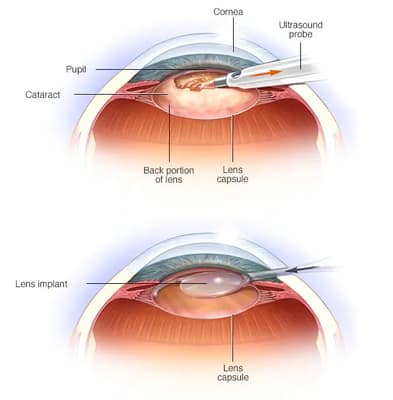Am I a Cataract Candidate?
If you’re over 40 and your vision isn’t what it used to be, you may be wondering if you’re a candidate for cataract surgery. While age is the biggest risk factor for developing cataracts, there are other factors that can increase your chances of needing surgery, including diabetes, family history, smoking, certain medications, and eye injury or inflammation.
Book Free Consultation
Book Appointment or Video Consultation online with top eye doctors
What Does It Take to Be a Good Candidate for Cataract Surgery?
Cataracts are a common consequence of age and will affect millions of individuals as they get older. In fact, by the age of 65, over 90% of people have cataracts.
To be accepted for cataract surgery, you must first be diagnosed with a cataract. While most individuals wait for their symptoms to hinder their ability to live a happy life, you should schedule an eye doctor’s checkup on a regular basis.
Your doctor will be able to take pictures of your eye and use a special magnifying lens to get a closer look at the cataract. If you have a cataract, you may notice that your vision is blurred or that colors appear faded. You may also find it difficult to drive at night or to read small print.
When Should Cataract Surgery Be Considered?
Cataract surgery should be considered as soon as symptoms begin to interfere with your ability to live a good, happy, healthy, and productive life. Because the symptoms progress slowly over time, cataract surgeons typically prefer to wait until the cataract is mature before recommending surgery.
Change in eyeglasses prescription is the most typical way to treat early stages of cataract development. While cataract surgery will be required at some point as the disorder progresses, this allows patients time to consider whether or not they are willing to take that hazardous step – and wait.
At the end of the day, you’ll have to talk with your doctor. Because everyone’s situation is unique, and treatment plans are frequently customized for each individual, your ophthalmologist will let you know when cataract surgery is suggested, required, and unnecessary.


